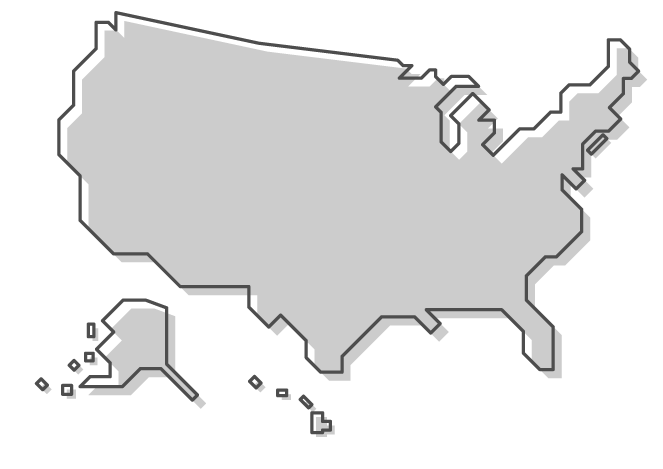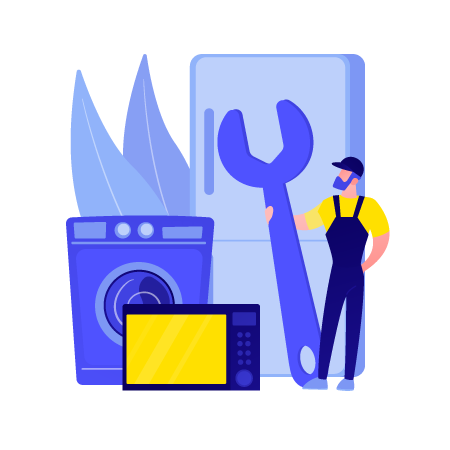Schedule a date, and we’ll fix it.
Trust the Appliance Repair Experts
Tell us what needs fixing, and we'll find the right person to fix it
Dryer Repair Pros Near Me
You can get by without a dryer. But do you want to? Sooner or later, you’ll get tired of hanging wet laundry over the shower curtain rod, on doorknobs, over the treadmill you never use, and on stair railings.
Better idea: Schedule an appliance repair technician to fix it. Our techs can fix most major brands of gas and electric dryers, no matter where you bought it.
Some common dryer problems
The dryer won’t start
If you push Start and the dryer doesn’t start, check that the door is completely closed. The dryer can’t start if the door isn’t latched. If the door is closed, the problem could be that the dryer door switch isn’t working, so the dryer can’t detect whether the door is closed or open.
Here are more reasons that the dryer won’t start.
- The push-to-start button isn’t working. Dryers with mechanical controls instead of electronic have a push-to-start button.
- The dryer thermal fuse in an electric dryer tripped because the air in the dryer became too hot (usually because the vent is clogged with lint). In a gas dryer, the dryer will run but not heat if the thermal fuse trips.
- The dryer drum motor has failed, so it no longer drive the pulley and belt that make the dryer drum turn.
- The dryer drum belt is broken. You can check it yourself: unplug the dryer and lift open the top of the dryer. If you don’t see the belt encircling the drum, the belt has broken.
The dryer won’t heat
If your dryer runs but doesn’t heat, that load’s coming out just as wet as it went in. Here are components that might not be working:
- In an electric dryer, the heating element. In a gas dryer, either the flame sensor or the igniter.
- The dryer operating thermostat, which turns the heat on and off to maintain the temperature. When it’s not working, the dryer might not heat at all, or might overheat.
- The dryer thermal cut off fuse, which trips when the dryer overheats. Once the fuse trips, the dryer won’t heat until the fuse is replaced.
The dryer starts and then stops
You start the dryer, go do something else, and return to find that the load isn’t fully dry because the dryer shut down before it finished the job. If you use fabric softener or dryer sheets, residue on the dryness sensors could be interfering; you can wipe them with rubbing alcohol to remove the residue.
If cleaning the sensors doesn’t work, here are a few reasons the dryer might stop after it starts:
- The dryer thermal cut off fuse tripped because the dryer overheated. A dryer can get too hot if it can’t vent moist, heated air to the outdoors because the vent tube is clogged with lint.
- If the drive motor is failing, it might shut down mid-cycle because it overheats. Some dryers will restart automatically when the motor cools, but others require that you restart them. Eventually, the motor will stop working completely, and the dryer won’t start at all.
- If the door latch and strike don’t fit together snugly, the vibration of the running dryer could open the dryer door just enough to trigger the door switch, which will signal the electronic control board that the dryer is open, and the dryer will shut off. The dryer will also stop if door switch itself fails while the dryer is running.
Appliance Repair
Our appliance repair technicians are nationwide so we always have someone located near you.
How it works
It’s easy: Just tell us what needs to be repaired, and we’ll connect you to experienced appliance repair techs near you. Then schedule your repair appointment. In some cases, same-day appointments might be available in your area.
Step 1
Tell us what you need repaired
Step 2
We’ll connect you with an experienced team of appliance repair techs
Step 3
Schedule an appliance repair appointment. In some cases, same-day appointments may be available in your area
We Service All 50 States


Repair or replace?
In general, if the cost of the repair is less than half of the cost of a new appliance — or if the appliance is less than 5 years old — it’s usually more economical to repair it.
